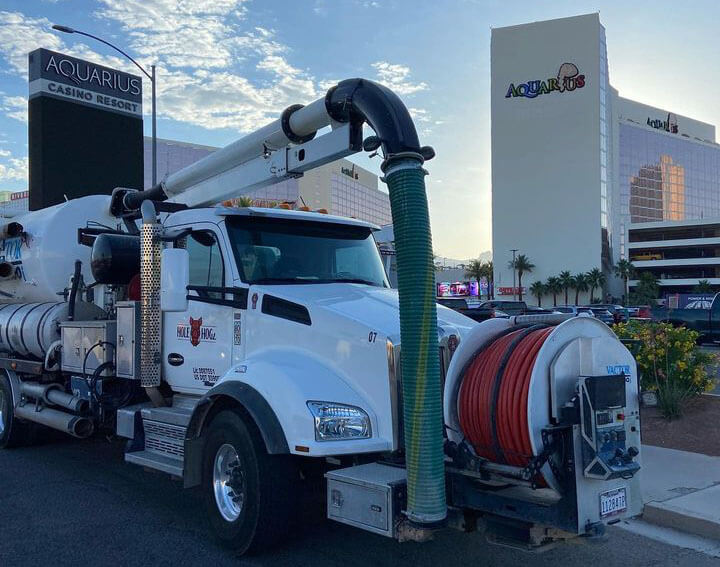Hydrovac Excavation
An all-weather soultion.
Posted 03:04 January 14, 2025
Last Updated 03:04 January 14, 2025

Overview
• Hydrovac excavation is a non-destructive digging method using high-pressure water and vacuum suction.
• More effective than traditional excavation, particularly in cold weather conditions.
• Used across industries such as construction, oil and gas, and telecommunications.
Definition and Process
• High-pressure water breaks up soil, which is then removed by vacuum into a holding tank.
• Ideal for working in frozen or hard-packed soils where traditional methods struggle.
• Reduces dust emissions, maintaining air quality.
Advantages of Hydrovac Excavation
Faster:
• Quick soil removal with high precision.
• Reduces reliance on manual labor and heavy machinery.
• Minimizes damage to surrounding infrastructure.
Safer:
• Reduces worker exposure to hazardous conditions.
• Allows operation in extreme weather without compromising safety.
• Minimizes reliability issues associated with traditional excavation.
Lower Cost:
• Requires fewer personnel.
• Reduces repair costs due to minimal infrastructure damage.
• Improves efficiency and accuracy, lowering overall project costs.
Benefits in Cold Weather
Increased Safety:
• Eliminates manual labor in icy conditions, reducing injury risks.
• Utilizes weatherproofed equipment to maintain efficiency.
• Encourages proper safety protocols and training.
Reduced Damage:
• Limits disruption to surrounding infrastructure.
• Provides accurate excavation, preventing damage to underground utilities.
• Prevents project delays due to frozen ground.
Challenges of Traditional Excavation in Cold Weather
Equipment Malfunction:
• Freezing temperatures can damage machinery components.
• Requires additional measures such as insulation and thawing equipment.
Frozen Ground Issues:
• Requires extensive thawing before excavation.
• Reduces soil stability, making manual digging difficult.
• Increases project costs and time delays.
Safety Considerations
• Hydrovac excavation reduces accidents by 33% compared to traditional methods.
• Checking equipment functionality before operation.
• Ensuring proper winter maintenance and fuel management.
• Providing operator training for extreme weather conditions.
• Monitoring weather forecasts to prevent unforeseen risks.
Cost Comparison
Labor Savings:
• Requires fewer workers than traditional methods.
• Improves efficiency through precise excavation.
Equipment Costs:
• Reduces wear and tear on machinery.
• Eliminates the need for heavy excavation equipment such as bulldozers.
Long-Term Savings:
• Prevents costly repairs to underground utilities.
• Minimizes environmental restoration expenses.
Equipment Requirements
• Specialized hydrovac trucks with high-pressure water and vacuum systems.
• Weatherproofing features for operation in extreme temperatures.
• Regular maintenance to ensure functionality and safety.
Environmental Impact
Reduced Emissions:
• Lower fuel consumption compared to traditional methods.
Minimal Soil Erosion:
• Less surface disturbance, preserving topsoil layers.
Water Conservation:
• Uses 50% less water than other drilling methods.
Conclusion
• Hydrovac excavation provides a superior alternative to traditional excavation, particularly in cold weather.
• Offers faster, safer, and more cost-effective excavation.
• Suitable for various soil types and terrains with minimal environmental impact.
• Ensures compliance with regulations for safety and environmental protection.
• Investing in hydrovac excavation enhances project efficiency and safety while reducing costs and environmental risks.
If you have an upcoming excavation project, contact Hole Hogz today for a free consultation. We service Las Vegas, Henderson, Boulder City, and most parts of Clark County Nevada.
